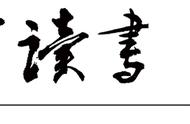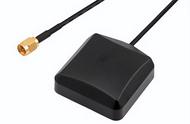
人称代词的用法
① 人称代词作主语,用主格。
如:
We love our country.
我们热爱我们的祖国。
② 人称代词作宾语,用宾格。
如:
Winnie is a nice girl. We all like her.
温妮是个好姑娘。我们都喜欢她。
③ 人称代词在口语中,用宾格。
如:
If I were her, I would stay.
如果我是她,我就留下来。

人称代词的宾格代替主格的几种场合
① 在日常生活中,人称代词作表语时,常用代词的宾格。
如:
A: Who is knocking at the door?
-谁在敲门呀?
B: It's me.
-是我。
② 口语中,当人称代词孤立地用于不带谓语的句子中作主语时,常用代词的宾格。
如:
A: I don't want to go to the theater tonight.
-今晚我不想去剧院。
B: Me neither.
-我也不想去。
A: I would like to stay here for another week.
-我想在这里再呆一周。
B: Me too.
-我也是。
③ 在带as和than的比较级后面,许多场合下用代词的宾格。
如:
She knows me as well as him.
她像了解他一样了解我。
He is taller than me.
他比我高。
④ 口语中,当人称代词用于带有强烈感情色彩的句子中作主语且其后不带宾语时,多用代词的宾格。
如:
A: You ought to do it at once.
-你应该马上做。
B: What? Me!
-什么?我!

多个人称代词并列时的顺序
在英语中如果出现多个人称代词,其排列的顺序主要有如下几种情况:
① 单数的场合:you he/she I
如:
You, he and I will go shopping tomorrow.
你、他和我明天将去购物。
② 复数的场合:we you they
如:
We, you and they are all Chinese.
我们、你们和他们都是中国人。
③ 男女两性并列场合:he she
如:
He and she don't agree with me.
他和她不同意我的看法。
④ 承认错误或承担责任时:I he/she you
如:
I and he are to blame for the accident.
我和他应为这次事故承担责任。
⑤ You and I是固定结构,即使是在承认过失时,词序也不变。
如:
You and I are to blame.
我和你应为此负责。

he 和 she 的特殊用法 [考纲之外拓展部分]
he 可指代雄性动物或庞大而又威猛之物。
she 可指代雌性动物或柔弱,优美之物,也可代表拟人化说法中的国家,月亮,汽车,轮船等无生命的东西,以表达其喜爱或亲切之情。
如:
The fierce tiger carme at the monkey, but he missed her.
凶猛的老虎向猴子扑来,可没扑到。
(he指tiger,her指monkey。这句话中miss是动词,后面要用代词的宾格形式,her是she的宾格。)
China will always do what she has promised to do.
中国将始终履行自己的诺言。
The moon loses her brilliance when the sun makes his appearance.
太阳一出来,月亮就失去了她的光辉。
She was Titanic,a ship which was said never to sink.
她就是泰坦尼克号,据说是一艘永不沉没的船
,














